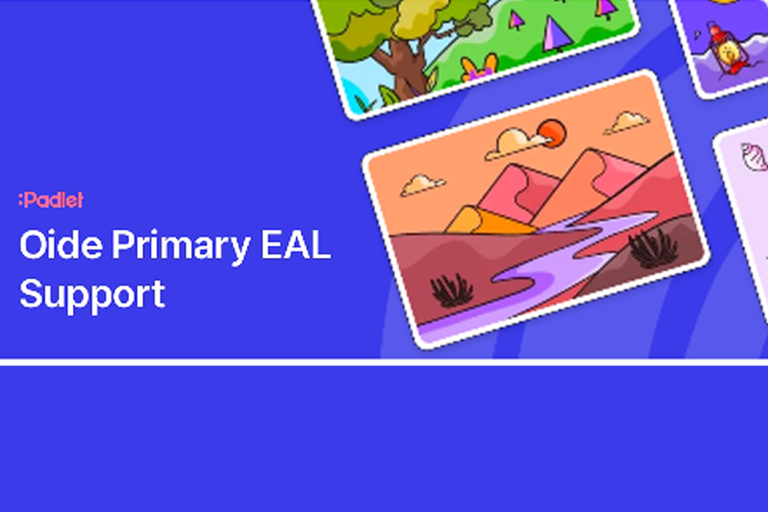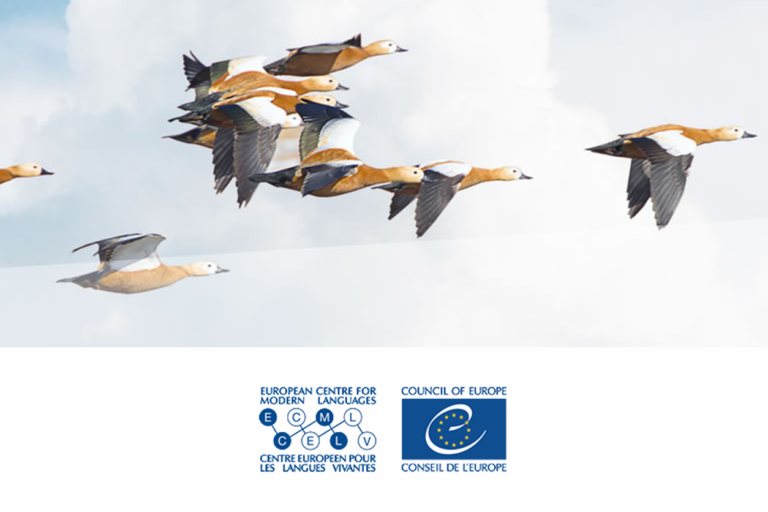In this video about An Intercultural Look at our Schools Toolkit, we visit Coláiste Mhichíl, CBS Sexton Street, Limerick. We hear about how the framework was used to address the intercultural dimension in the school. The principal, teachers, pupils and parents discuss the Toolkit in action. They all agree about how it has really positively impacted and assisted the school.
As one pupils concluded, “I would really appreciate that every school in Ireland participate in this program.”
This is an excerpt from Immersion, a powerful short film by Richard Levien This clip shows Moisés in math class and plunges us into the reality of the classroom as experienced by Moises. The video illustrates why it’s so important that teachers of EAL students use strategies to support the development of academic language in different subject areas and encourages us not to make assumptions about the student’s competence based on their language proficiency language(s) of schooling”.
Using the ECML project as a springboard, we have adapted and contextualised the ECML Roadmap for Use in Post-Primary Schools in Ireland. The result is this toolkit for self-evaluation and support for intercultural and linguistic diversity in schools wishing to address inclusion.
This video showcases the work of Dr Dee McGarry, Language Support Programme teacher in St Mark’s Community School in Tallaght. The role of the L1 (first language) in supporting English language acquisition and the role of the English Language Support Programme in promoting L1 use are highlighted.

Intercultural competence is the capacity to recognise, respect and interpret cultural diversity and difference in all their forms. The development of intercultural competence is an explicit goal of post-primary education in Ireland.
This article provides relevant background information

This Guide focuses mainly on the CEFR Companion Volume’s role in enhancing engagement in language education.
It is intended as a starting point for a continuing reflection on the centrality of action and agency in the language learning/teaching process, and on enhancing learner agency and engagement in plurilingual and intercultural language education.

The integration of intercultural content across a variety of subject areas provides the student with a more coherent and richer learning experience.
To support teachers with this integration, these guidelines present five themes within which the content of intercultural education may be developed.

The Post-Primary Languages Ireland | Primary Intercultural Guidelines are designed to help principals and teachers in primary schools respond to the opportunity of integrating the home languages of EAL pupils in the activities of the classroom and develop pupils’ intercultural learning and they incorporate many very practical ideas on how to do this.

Designed to create tangible materials which support the demands of this context, the INCLUDEED Erasmus+ project aims to integrate migrants and refugees through one of Europe’s greatest assets – their languages. This guide aims to become an ally of both those who wish to deepen their knowledge of the migration phenomenon and those who wish to facilitate the integration process of these groups.

Vocal in Need is a project lead by Munster Technological University. It hosts online training materials that deal with language and cultural awareness for people working with refugees and migrants. In 2020 they were awarded the European Language Label Award by Léargas.

A School of Sanctuary is a school that is committed to creating a safe, welcoming and inclusive environment that benefits everybody, including anyone in its community who is seeking sanctuary. It is a school that helps it students, staff, parents and the wider community to understand what it means to be seeking sanctuary, and to extend a welcome to everyone regardless of their status.

The OIDE EAL Padlet provides a comprehensive suite of relevant Department of Education publications, materials, and resources for teachers and school leaders who are supporting EAL learners in their schools.

Promising practices are gathered from all over Europe and organised in a searchable database the purpose of which is to both inspire and help the schools plan a whole-school strategy.

RECOLANG provides a set of values, principles and criteria for the assessment of home languages. These are based on a series of examples of existing assessment practices that have been used with migrant learners in secondary education. The overall aim is to support the social and institutional recognition of home languages and to enhance learners’ plurilingual repertoires.

This EA ‘toolkit’ aims to help schools to create and sustain a welcoming and inclusive environment for students and parents from all backgrounds and ensure equal access for all.

CEFR linked descriptors for mathematics and history/civics
These resources highlight challenges for young learners in subject classes where the language of instruction is not their first language. The focus is on minimum language standards in history/civics and mathematics for learners aged 12/13 and 15/16. The language descriptors are linked to CEFR levels A2, B1 and B2 and available in six languages.

Access to education and success at school depend heavily on language competences. The Platform is an instrument enabling member states to develop their programmes relating to languages of schooling and all language teaching while also benefitting from their own experience and expertise.

Support for Primary and Post-Primary Teachers in Ireland who work with English language learners.

Careers Portal‘s mission is to provide the most up-to-date career information supporting career and educational research in an integrated, innovative, supportive and engaging manner.
There are Career Guidance tools for all.

The aim of Languages Connect is to build awareness of the many advantages of having foreign language skills, and to make foreign language learning more appealing to everyone.

An Intercultural Look at our Schools Accessibility Statement
We firmly believe that the internet should be available and accessible to anyone, and are committed to providing a website that is accessible to the widest possible audience, regardless of circumstance and ability.
To fulfill this, we aim to adhere as strictly as possible to the World Wide Web Consortium’s (W3C) Web Content Accessibility Guidelines 2.1 (WCAG 2.1) at the AA level. These guidelines explain how to make web content accessible to people with a wide array of disabilities. Complying with those guidelines helps us ensure that the website is accessible to all people: blind people, people with motor impairments, visual impairment, cognitive disabilities, and more.
This website utilizes various technologies that are meant to make it as accessible as possible at all times. We utilize an accessibility interface that allows persons with specific disabilities to adjust the website’s UI (user interface) and design it to their personal needs.
Additionally, the website utilizes an AI-based application that runs in the background and optimizes its accessibility level constantly. This application remediates the website’s HTML, adapts Its functionality and behavior for screen-readers used by the blind users, and for keyboard functions used by individuals with motor impairments.
If you’ve found a malfunction or have ideas for improvement, we’ll be happy to hear from you. You can reach out to the website’s operators by using the following email
Our website implements the ARIA attributes (Accessible Rich Internet Applications) technique, alongside various different behavioral changes, to ensure blind users visiting with screen-readers are able to read, comprehend, and enjoy the website’s functions. As soon as a user with a screen-reader enters your site, they immediately receive a prompt to enter the Screen-Reader Profile so they can browse and operate your site effectively. Here’s how our website covers some of the most important screen-reader requirements, alongside console screenshots of code examples:
Screen-reader optimization: we run a background process that learns the website’s components from top to bottom, to ensure ongoing compliance even when updating the website. In this process, we provide screen-readers with meaningful data using the ARIA set of attributes. For example, we provide accurate form labels; descriptions for actionable icons (social media icons, search icons, cart icons, etc.); validation guidance for form inputs; element roles such as buttons, menus, modal dialogues (popups), and others. Additionally, the background process scans all the website’s images and provides an accurate and meaningful image-object-recognition-based description as an ALT (alternate text) tag for images that are not described. It will also extract texts that are embedded within the image, using an OCR (optical character recognition) technology. To turn on screen-reader adjustments at any time, users need only to press the Alt+1 keyboard combination. Screen-reader users also get automatic announcements to turn the Screen-reader mode on as soon as they enter the website.
These adjustments are compatible with all popular screen readers, including JAWS and NVDA.
Keyboard navigation optimization: The background process also adjusts the website’s HTML, and adds various behaviors using JavaScript code to make the website operable by the keyboard. This includes the ability to navigate the website using the Tab and Shift+Tab keys, operate dropdowns with the arrow keys, close them with Esc, trigger buttons and links using the Enter key, navigate between radio and checkbox elements using the arrow keys, and fill them in with the Spacebar or Enter key.Additionally, keyboard users will find quick-navigation and content-skip menus, available at any time by clicking Alt+1, or as the first elements of the site while navigating with the keyboard. The background process also handles triggered popups by moving the keyboard focus towards them as soon as they appear, and not allow the focus drift outside it.
Users can also use shortcuts such as “M” (menus), “H” (headings), “F” (forms), “B” (buttons), and “G” (graphics) to jump to specific elements.
We aim to support the widest array of browsers and assistive technologies as possible, so our users can choose the best fitting tools for them, with as few limitations as possible. Therefore, we have worked very hard to be able to support all major systems that comprise over 95% of the user market share including Google Chrome, Mozilla Firefox, Apple Safari, Opera and Microsoft Edge, JAWS and NVDA (screen readers).
Despite our very best efforts to allow anybody to adjust the website to their needs. There may still be pages or sections that are not fully accessible, are in the process of becoming accessible, or are lacking an adequate technological solution to make them accessible. Still, we are continually improving our accessibility, adding, updating and improving its options and features, and developing and adopting new technologies. All this is meant to reach the optimal level of accessibility, following technological advancements. For any assistance, please reach out to